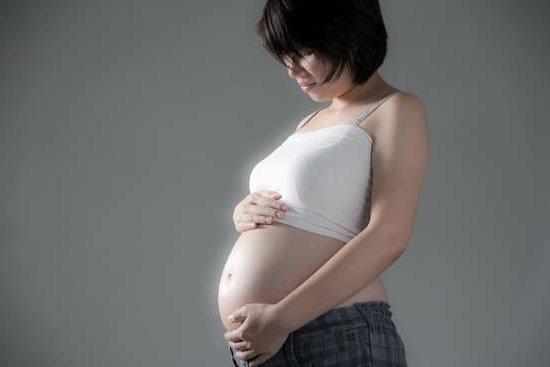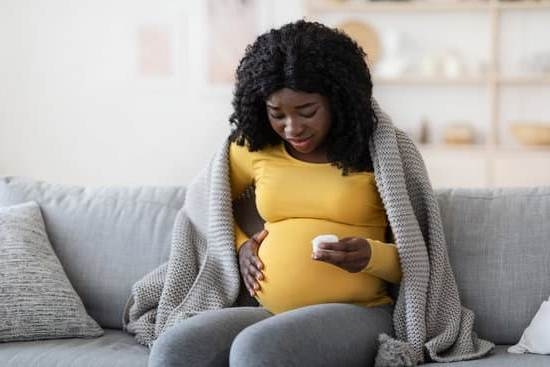Pregnancy cramps are a common discomfort experienced by many expectant mothers. This article aims to provide a comprehensive understanding of what causes pregnancy cramps, the different types, when to be concerned, coping mechanisms, remedies, prevention tips, when to seek medical help, and real-life experiences from other moms-to-be.
During pregnancy, the body goes through numerous changes and pregnancy cramps can be caused by various factors such as Braxton Hicks contractions and ligament pain. It’s important for expectant mothers to differentiate between normal discomfort and signs of preterm labor. Understanding the root cause of these cramps is crucial in managing them effectively.
This section will delve deeper into the causes of pregnancy cramps and explore the different types – Braxton Hicks contractions versus ligament pain. By gaining a thorough understanding of what triggers these cramps, expecting mothers can better equip themselves with the knowledge needed to navigate through this part of their pregnancy journey.
Types of Pregnancy Cramps
Braxton Hicks contractions and ligament pain are common types of pregnancy cramps experienced by expectant mothers. Braxton Hicks contractions, also known as “practice contractions,” are irregular and generally painless contractions that can occur throughout the second and third trimester. These contractions are the body’s way of preparing for labor and are typically felt as tightening or hardening of the abdomen.
On the other hand, ligament pain is caused by the stretching and shifting of the ligaments that support the uterus as it grows. This type of pregnancy cramp is often described as sharp, shooting pains in the lower abdomen or pelvic area. It can be particularly noticeable during sudden movements or changes in position, such as standing up quickly or rolling over in bed.
It is important for expectant mothers to understand the differences between these two types of pregnancy cramps. While Braxton Hicks contractions are a normal part of pregnancy and help prepare the body for labor, ligament pain is a result of the physical changes taking place in the body to accommodate a growing baby. Both types of cramps can cause discomfort, but recognizing their distinct characteristics can provide reassurance and peace of mind.
When to Worry
During pregnancy, it is common for women to experience cramps due to the changes happening in their bodies. However, it is important to be able to differentiate between normal pregnancy cramps and signs of preterm labor. Here are some key points to consider:
1. Frequency and Intensity:
Normal pregnancy cramps are often sporadic and mild, similar to menstrual cramps. They may come and go and are usually not accompanied by other symptoms. On the other hand, signs of preterm labor may involve more frequent and intense contractions, often with a regular pattern.
2. Timing:
It is essential to pay attention to when the cramps occur. Normal pregnancy cramps can happen at any time but are commonly felt during the second and third trimesters. Signs of preterm labor, on the other hand, typically occur before 37 weeks of gestation.
3. Additional Symptoms:
Along with regular pregnancy cramps, there should not be any other concerning symptoms present. Signs of preterm labor may include pelvic pressure, lower back pain, vaginal spotting or bleeding, or a change in vaginal discharge.
It is crucial for expectant mothers to be aware of these differences and seek medical attention if they suspect that they are experiencing signs of preterm labor. Monitoring these symptoms closely can help ensure a healthy pregnancy for both mother and baby.
Coping With Pregnancy Cramps
Pregnancy can bring about a range of discomforts, and cramps are certainly one of the most common. Dealing with pregnancy cramps can be challenging, but there are several tips that pregnant women can follow to manage the discomfort.
One effective way to cope with pregnancy cramps is to practice gentle exercise and stretching. Activities such as prenatal yoga or walking can help alleviate tension in the muscles and provide relief from cramping. Additionally, maintaining good posture throughout the day and being mindful of body mechanics can also help reduce the frequency and intensity of pregnancy cramps.
Another helpful tip for managing pregnancy cramps is staying well-hydrated. Dehydration can exacerbate muscle cramping, so it’s important for pregnant individuals to drink plenty of water throughout the day. Aim for at least 8-10 glasses of water daily, especially if experiencing frequent cramping.
Furthermore, practicing relaxation techniques such as deep breathing, meditation, or warm baths can provide relief from pregnancy cramps. These methods can help calm both the body and mind, reducing stress and tension that may contribute to heightened discomfort.
| Tips for Managing Discomfort | Benefits |
|---|---|
| Practice gentle exercise and stretching | Alleviates muscle tension and provides relief from cramping |
| Stay well-hydrated | Prevents dehydration which can exacerbate muscle cramping |
| Practice relaxation techniques | Calms the body and mind, reducing stress and tension contributing to discomfort |
Remedies for Pregnancy Cramps
During pregnancy, many women experience cramps as the body goes through various changes to accommodate the growing baby. These cramps are caused by the expansion of the uterus, as well as hormonal shifts and increased blood flow. While some cramping is normal during pregnancy, it can still be uncomfortable. Fortunately, there are natural and safe pain relief options that expecting mothers can explore to alleviate pregnancy cramps.
Hot or Cold Compress
One of the simplest and most effective ways to relieve pregnancy cramps is by applying a hot or cold compress to the affected area. A warm towel or heating pad can help relax the muscles and reduce discomfort. Conversely, a cold compress can help numb the area and decrease inflammation. It’s important to use caution with heat during pregnancy, so make sure that any heating pad or hot water bottle is not too hot and avoid prolonged use.
Hydration and Nutrition
Proper hydration and a balanced diet can also play a crucial role in managing pregnancy cramps. Dehydration can exacerbate muscle cramps, so it’s essential to drink plenty of water throughout the day. Additionally, consuming foods rich in potassium, calcium, and magnesium can help prevent and relieve muscle cramps. Some examples include bananas for potassium, dairy products for calcium, and leafy greens for magnesium.
Gentle Exercise and Stretching
Engaging in gentle exercise such as prenatal yoga or taking short walks can help improve circulation and alleviate pregnancy cramps. Furthermore, practicing specific stretching exercises tailored for pregnant women can provide relief by reducing tension in the muscles and ligaments. It’s important to consult with a healthcare provider before starting any new exercise routine during pregnancy to ensure safety for both mom and baby.
By exploring these natural remedies for pregnancy cramps, expecting mothers can find relief from discomfort without resorting to medications that may pose risks during pregnancy. However, it’s always advisable for pregnant women to consult with their healthcare provider before implementing any new pain relief methods or making significant changes to their diet or exercise regimen.
Preventing Pregnancy Cramps
Pregnancy can be a beautiful and exciting time for many women, but it can also come with its share of discomforts, including pregnancy cramps. These cramps are often caused by the expanding uterus and hormonal changes, but there are ways to prevent or minimize their occurrence. By adopting healthy habits and avoiding certain activities, you can help reduce the likelihood of experiencing pregnancy cramps.
One important way to prevent pregnancy cramps is by staying hydrated. Dehydration can exacerbate muscle cramps, so it’s essential to drink plenty of water throughout the day. Additionally, maintaining a balanced diet that includes foods rich in calcium, magnesium, and potassium can help prevent muscle cramps during pregnancy. Regular exercise, such as prenatal yoga or walking, can also help strengthen your muscles and reduce the frequency of cramping.
Another key habit for preventing pregnancy cramps is practicing good posture. As your baby grows and your body changes, it’s easy to develop poor posture habits that put strain on your muscles and lead to cramping. By paying attention to how you sit, stand, and sleep, you can alleviate unnecessary pressure on your muscles and reduce the risk of experiencing cramps.
Lastly, avoiding certain activities that may trigger pregnancy cramps is essential for minimizing discomfort. This may include reducing the amount of time spent standing or sitting in one position for too long, wearing supportive footwear to prevent posture-related strains, and being mindful of lifting heavy objects that could strain your muscles.
| Preventing Pregnancy Cramps | Habits and Activities |
|---|---|
| Stay Hydrated | Drinking plenty of water throughout the day |
| Maintain a Balanced Diet | Eat foods rich in calcium, magnesium, and potassium |
| Practice Good Posture | Paying attention to how you sit, stand, and sleep |
| Avoid Certain Activities | Reducing time spent standing or sitting; wearing supportive footwear; being mindful of lifting heavy objects |
Seeking Help
Understanding the Importance of Seeking Professional Help
While pregnancy cramps are often normal and manageable, there are certain situations where it is crucial to seek help from a healthcare provider. It’s important to remember that every pregnancy is unique, and what may be normal for one expectant mother might not be for another. Consulting with a healthcare provider can provide reassurance and peace of mind, while also ensuring the well-being of both the mother and the baby.
Signs That Warrant Medical Attention
If you experience severe or persistent pregnancy cramps that are accompanied by vaginal bleeding, fluid leakage, unusual discharge, fever, or any other concerning symptoms, it is time to seek medical help. Additionally, if you notice a decrease in fetal movement along with intense cramping, it is essential to contact your healthcare provider immediately. These signs could indicate a more serious issue such as preterm labor or other complications that require prompt medical attention.
When Not to Delay Seeking Help
It’s crucial not to delay seeking help if you experience severe and constant pain in your abdomen or pelvis. Ignoring these symptoms can lead to potential risks for both the mother and the baby. Never hesitate to reach out to your healthcare provider if you have any doubts or concerns about your pregnancy cramps. Remember that seeking timely medical assistance can make all the difference in ensuring a healthy outcome for both you and your baby.
As an expectant mother, being aware of when to consult a healthcare provider for pregnancy cramps is essential for maintaining a smooth and healthy pregnancy journey. By understanding the signs that warrant medical attention and not delaying seeking help when necessary, you can ensure the best possible care for yourself and your growing baby.
Real Stories
In conclusion, pregnancy cramps are a common and often uncomfortable symptom experienced by many expectant mothers. While they can be caused by various factors such as Braxton Hicks contractions or ligament pain, it is important for pregnant women to be able to recognize the difference between normal pregnancy cramps and signs of preterm labor.
Understanding how to cope with and manage the discomfort of pregnancy cramps, as well as knowing when to seek help from a healthcare provider, is crucial for ensuring a healthy and comfortable pregnancy.
Many women have found relief from pregnancy cramps through natural and safe pain relief options, as well as through avoiding certain activities or habits that may exacerbate the discomfort. However, each woman’s experience with pregnancy cramps is unique, and seeking guidance from healthcare professionals is essential for understanding what will work best for each individual situation.
The personal stories shared by expectant mothers in dealing with their own experiences of pregnancy cramps serve as a reminder that every woman’s journey through pregnancy is different. By being informed about the causes, types, remedies, prevention methods, and when to seek help for pregnancy cramps, women can better navigate this aspect of their prenatal experience and work towards a healthier and more comfortable term.
Frequently Asked Questions
What Does Pregnancy Cramps Feel Like?
Pregnancy cramps can feel similar to period cramps, with a dull or sharp pain in the lower abdomen. Some women also describe it as a pulling or stretching sensation in the belly.
Is It Normal to Have Period Like Pains in Early Pregnancy?
Yes, it is normal to experience period-like pains in early pregnancy. These cramps can occur as the uterus expands and the ligaments stretch to accommodate the growing fetus. However, if the pain is severe or persistent, it’s important to consult a healthcare provider.
How Long Should Early Pregnancy Cramps Last?
Early pregnancy cramps can last anywhere from a few seconds to a few minutes. Generally, they are mild and short-lived. If the cramps are accompanied by heavy bleeding or severe pain, it could indicate a problem and should be evaluated by a doctor promptly.

Welcome to my fertility blog. This is a space where I will be sharing my experiences as I navigate through the world of fertility treatments, as well as provide information and resources about fertility and pregnancy.





